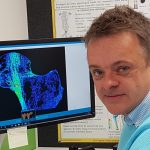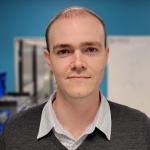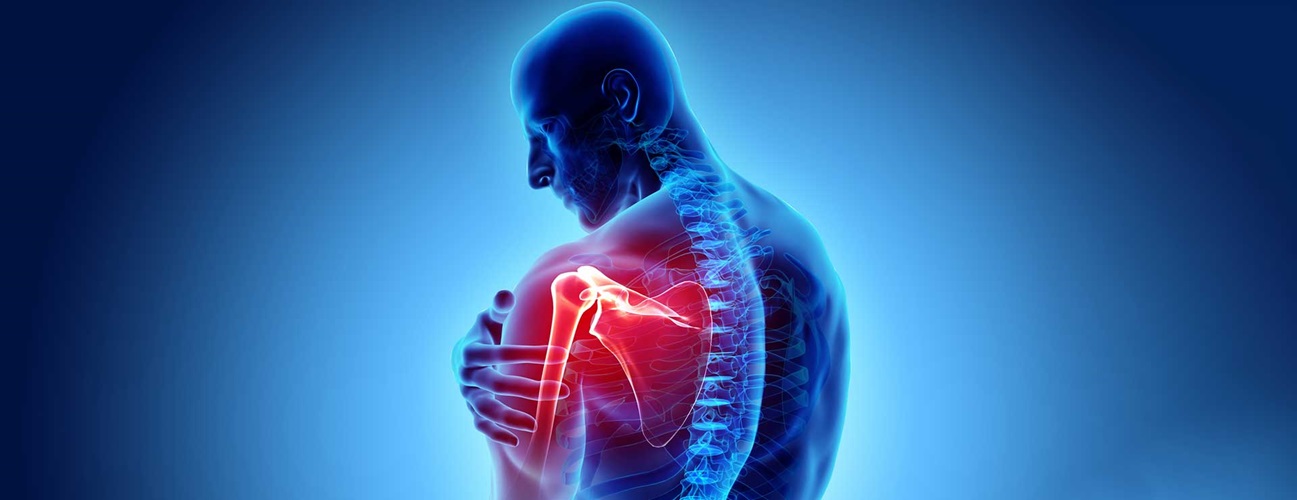Program 2
Robot Assisted Testing and Surgery
This program will use robots and emerging ultrasound technologies for studying the bone and joint response to complex three-dimensional and time-varying loads experienced during physical activity. These technologies will be used for developing robot-assisted procedures for improving precision in current shoulder arthroplasty procedures and will enable in-vitro testing of orthopaedic devices for the assessment of current and novel orthopaedic devices. This will assist surgical methods for optimal joint function and precision tracking in human motion experiments for rehabilitation and the comprehensive assessment of clinical intervention.

A/Prof Saulo Martelli
Faculty of Engineering, QUT QUT Science and Engineering Faculty
Program Participants

POST-DOC FELLOW
Jing Peng
Read Bio
Dr. Jing Peng works as a Research Fellow in Robotic Surgery within Program 2. Her research interests include computer vision, machine learning, robotics and pneumatic control. Jing completed her BEng in Measurement, Control Technology and Instruments and her PhD in Mechanical Engineering at Tsinghua University. During her PhD studies, she also carried out research in Mechanical and Manufacturing Engineering at the University of New South Wales as a Professional Practicum student. After graduation from Tsinghua University she worked at the University of Hong Kong as a Post-doctoral Fellow in Surgical Robotics and Soft Robotics. In 2019 she joined QUT as a Postdoctoral Research Fellow in Design Robotics for Advanced Manufacturing. Jing has several patents granted to her and she has published articles in materials and processing technologies, soft robotics and surgical robotics.

PHD STUDENT
Arun Jolly
Read Bio
“Relating anatomy, laxity and stability of the glenohumeral joint”.
Arun is currently undertaking his PhD within the Training Centre, based at QUT.
Arun is a Mechanical Engineer with postgraduate degree in Mechanical Design Engineering from Deakin University, Australia and an undergraduate degree in Mechanical Engineering from Mahatma Gandhi University, India. He has experience in numerical modelling and experimental studies for various different mechanical engineering applications. Arun’s PhD project focuses on exploring the relationship between anatomy, laxity, and stability of the glenohumeral joint across the population to assist with developing improved shoulder reconstruction planning, surgical procedure and rehabilitation.

PHD STUDENT
Morgan Windsor
Read Bio
“High precision robotic surgery for the shoulder”.
Morgan is currently undertaking his PhD within the Training Centre and QUT’s Centre for Robotics.
Morgan completed a Bachelor of Engineering (Mechatronics) at QUT and has a background in industry as an electrical engineer. Morgan’s research interests include developing enabling technologies to provide tools to assist surgeons in precisely executing preoperative plans.

POST-DOC FELLOW
Ahmed Sewify
Read Bio
“Automatic Advanced Ultrasound Imaging-Based Tomographic Dynamic Tracking of Shoulder Bony Structures”.
Ahmed is currently undertaking his PhD within the Training Centre, based at QUT’s Faculty of Health.
Ahmed graduated with a Master of Engineering (Electrical) and Bachelor of Engineering (Honours) (Mechatronics) from QUT. He has real-world experience as a Mechatronics Engineer at five different companies (BiVACOR, AOS, KIW, QUT and Netaware) working on task automation, computer vision, AutoCAD, GUI designs, web development and product design. His current project is focused on improving the availability, quality and understanding of 3D physical body structures, in particular the shoulder, by reconstructing 3D ultrasound images directly from raw channel transducer array data. Ahmed hopes to employ ultrasound imaging in a way that revolutionizes existing medical imaging techniques, increasing their field of view, speed, safety and dynamism.

